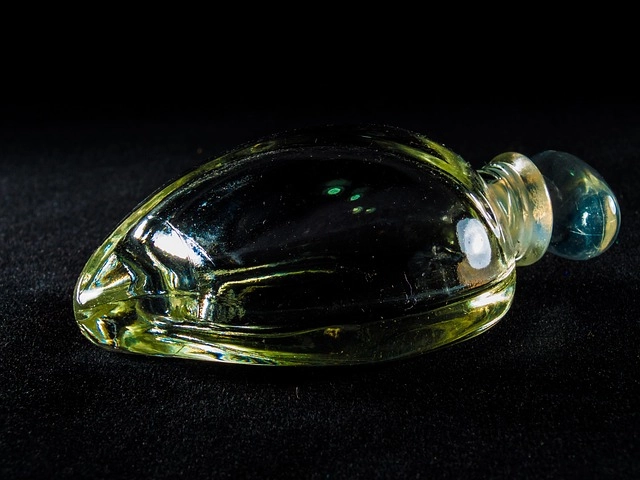Burberry Perfume's versatility lies in its ability to adapt to diverse skin types. Skin chemistry influences perfume evolution, affecting scent intensity and longevity. Dry skin allows scents to linger, while oil-prone complexions may require more frequent reapplication. Personal preferences and skin sensitivity play a role, making Burberry Perfume's performance subjective. Testing fragrances is vital for finding the best match based on individual skin conditions and olfactory preferences.
“Uncover the enigmatic behavior of Burberry Perfume, a fragrance that has captivated noses worldwide. This article delves into whether this scent transcends skin types or if it dances uniquely on each individual’s complexions. From dry skin’s delicate embrace to oil-prone’s lasting impression, we explore how skin sensitivity and personal preferences shape the perfume experience. Discover the science behind scent retention and navigate Burberry’s notes across various skin types, offering a nuanced perspective on this universally adored fragrance.”
- Burberry Perfume: A Universal Scent or Skin-Specific?
- Exploring the Fragrance's Behavior on Dry Skin
- How Oil-Prone Complexion Influences Scent Retention
- The Role of Skin Sensitivity in Perfume Experience
- Testing Burberry's Notes on Combination Skin Types
- Individual Differences: Personal Preferences and Perception
Burberry Perfume: A Universal Scent or Skin-Specific?

Burberry Perfume, whether hailed as a classic scent or a modern aroma, raises an intriguing question: Does it adapt to different skin types, or does its fragrance remain consistent for all? This is particularly important in the perfume industry, where personal chemistry plays a significant role in how scents evolve on an individual’s skin.
When considering Burberry Perfume, including its iconic Burberry Cologne variant, it’s fascinating to explore whether these fragrances possess the versatility to enchant diverse complexions. While some scents may be universally appealing, others can react uniquely with each person’s natural oils and pH levels, leading to varying scent intensities and longevity. Therefore, understanding how Burberry’s offerings interact with different skin types could be key to unlocking their full aromatic potential for every wearer.
Exploring the Fragrance's Behavior on Dry Skin

When it comes to luxury fragrances, such as Burberry Perfume, understanding how it interacts with different skin types is essential for a truly personalized scent experience. One particular focus area is its behavior on dry skin, where the perfume’s longevity and projection can be notably affected. Dry skin, due to its lack of natural oils, may cause certain scents to evaporate more quickly, leaving a lighter trail.
However, this doesn’t necessarily mean that Burberry Perfume won’t perform well; in fact, many high-quality fragrances, including Burberry Cologne, are designed with versatility in mind. The scent’s composition plays a crucial role in how it adapts to dry skin, with notes of higher concentration potentially lingering longer. This can result in a more intense yet refined olfactory experience for those with drier complexions.
How Oil-Prone Complexion Influences Scent Retention

An oil-prone complexion can significantly impact the way a fragrance, like Burberry Perfume or Burberry Cologne, wears and retains its scent. This is because oils on the skin’s surface can interact with fragrances, either enhancing or altering their aromas over time. For instance, when applied to oily skin, certain scents may dissolve more quickly due to the increased presence of sebum, leading to a faster evaporation rate. This can result in the fragrance’s top notes dominating for a shorter period, and the base notes becoming more prominent earlier than expected.
On the other hand, oils can also serve as a beneficial base for scent retention. They create a protective layer on the skin, slowing down the release of volatile organic compounds (VOCs) that make up a perfume’s aroma. This effect is particularly noticeable with heavier, longer-lasting fragrances designed to withstand the test of time. In contrast, lighter, fresher scents might still fade faster on oily complexions, requiring more frequent reapplication throughout the day.
The Role of Skin Sensitivity in Perfume Experience

The experience of perfume is deeply personal, and a significant factor in this subjective nature is skin sensitivity. Every individual has a unique relationship with fragrances, influenced by their skin’s ability to absorb and interact with scents. This is particularly relevant when considering popular options like Burberry Perfume or Burberry Cologne, as their performance can vary greatly across different skin types.
For instance, those with more sensitive skin might find certain notes in these perfumes to be overpowering or even irritating at first application. In contrast, individuals with drier complexions may notice a smoother and longer-lasting scent, as their skin tends to absorb oils and fragrances more readily. Understanding this dynamic ensures that the true essence of a perfume, such as Burberry’s signature aromas, can be appreciated fully, catering to individual preferences and skin reactions.
Testing Burberry's Notes on Combination Skin Types

When it comes to understanding how a fragrance performs on different skin types, Burberry Perfume stands out as an excellent case study. For those with combination skin, where areas of both dry and oily skin exist, the brand offers insights into its iconic scents’ behavior. Tests reveal that Burberry Notes, depending on the specific formula, can adapt to these varying skin conditions, providing a unique olfactory experience tailored to each individual.
For instance, Burberry Cologne, known for its fresh and woody aroma, may exhibit different nuances on combination skin types. While it maintains its invigorating opening notes of citrus and pepper, the heart and base notes might interact with the skin’s natural oils differently, creating a more balanced or even enhanced scent profile over time. This adaptability showcases the sophistication of the fragrance composition, ensuring that users can enjoy a personalized aroma throughout the day.
Individual Differences: Personal Preferences and Perception

When it comes to fragrances, individual differences play a significant role in how a perfume or cologne is perceived and performed on different skin types. Personal preferences vary greatly from person to person, influenced by cultural backgrounds, past experiences, and unique olfactory memories. What one person finds captivating might not evoke the same response in another. For instance, some may be drawn to the floral notes of Burberry Perfume, while others might prefer the woody essence of Burberry Cologne, all based on their personal taste and what resonates with them on a sensory level.
Furthermore, the perception of scent is highly subjective. The way a fragrance interacts with an individual’s skin chemistry can change how it smells over time. Factors like body temperature, humidity, and even the type of clothing worn can influence the development and projection of a perfume or cologne. Some people may find that Burberry Perfume, initially subtle, develops into a richer scent on their skin, while others might experience the opposite with Burberry Cologne. These individual variations highlight the importance of trying fragrances before making a purchase to ensure the desired effect and optimal performance on one’s unique skin type.






